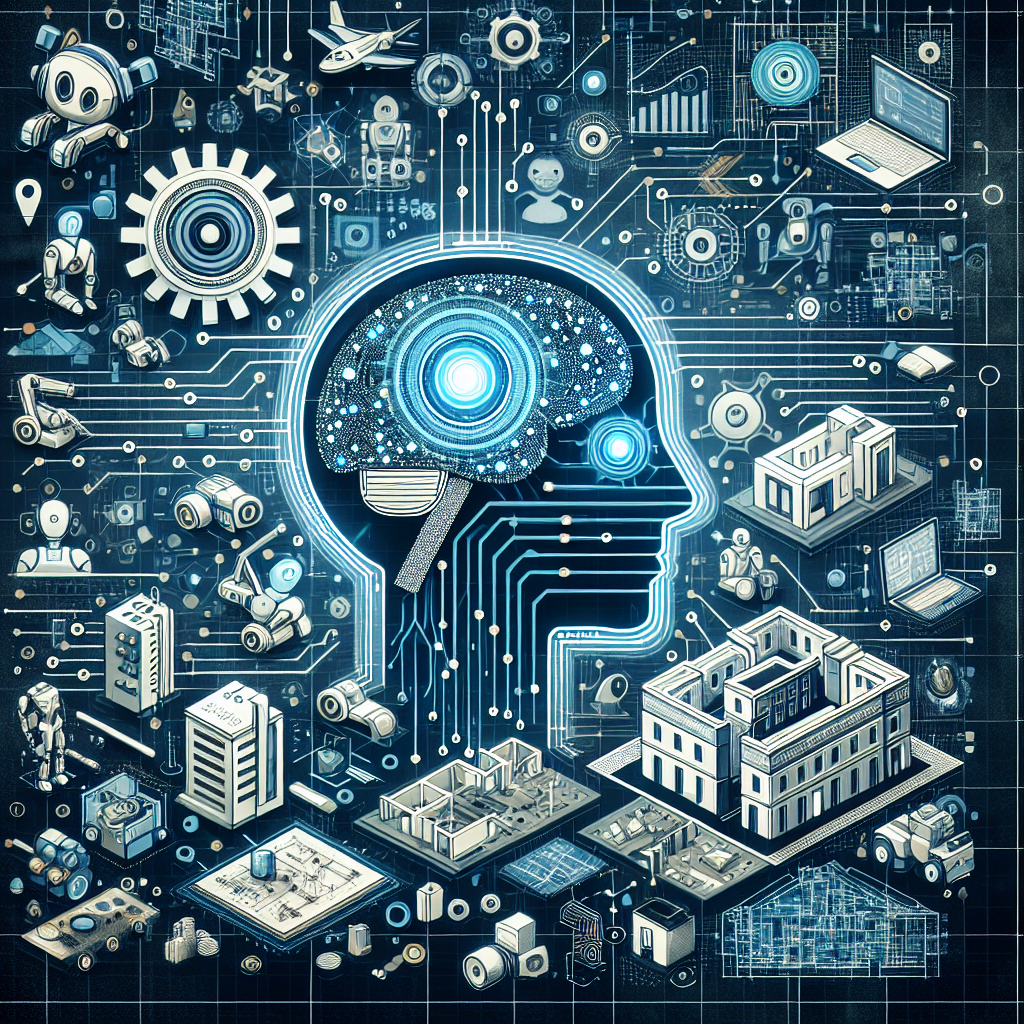With the rapid advancements in technology, the future of artificial intelligence (AI) in building information management (BIM) is looking brighter than ever. BIM is a process that involves creating and managing digital representations of physical and functional characteristics of buildings. It allows architects, engineers, and construction professionals to collaborate more effectively, reduce errors, and improve overall project efficiency.
AI has the potential to revolutionize the way BIM is used in the construction industry. By leveraging AI technologies, such as machine learning, natural language processing, and computer vision, BIM systems can become even more powerful and intelligent. In this article, we will explore the future of AI in BIM and how it can transform the construction industry.
One of the key ways AI can enhance BIM is through predictive analytics. By analyzing historical data from previous projects, AI algorithms can predict potential issues, such as cost overruns, schedule delays, or quality issues, before they occur. This allows project managers to take proactive measures to mitigate risks and ensure successful project delivery.
AI can also improve the design process by generating alternative design options based on predefined criteria, such as cost, energy efficiency, or sustainability. By analyzing vast amounts of data and using generative design algorithms, AI can help architects and engineers explore new design possibilities that may not have been considered otherwise.
Another area where AI can make a significant impact is in construction scheduling and coordination. By analyzing project schedules, resource availability, and potential conflicts, AI algorithms can optimize construction sequences and minimize delays. AI can also facilitate better communication and coordination among project stakeholders by automatically generating reports, notifications, and alerts.
Furthermore, AI can enhance the maintenance and operation of buildings by analyzing sensor data, maintenance records, and other relevant information. By predicting equipment failures, identifying maintenance needs, and optimizing energy usage, AI can help building owners reduce operational costs and improve occupant comfort.
In addition to these benefits, AI can also improve safety on construction sites by analyzing video feeds from cameras, drones, and other sensors to detect potential hazards and alert workers in real-time. AI can also monitor worker behavior and identify patterns that may indicate fatigue or other safety risks.
Overall, the future of AI in BIM is promising, with the potential to transform the construction industry and improve project outcomes. By leveraging the power of AI technologies, BIM systems can become more intelligent, efficient, and effective in managing the complexities of modern construction projects.
FAQs:
1. What are some examples of AI applications in BIM?
– Some examples of AI applications in BIM include predictive analytics for risk management, generative design for alternative design options, optimization algorithms for construction scheduling, and sensor data analysis for building maintenance and operation.
2. How can AI improve project efficiency in construction?
– AI can improve project efficiency in construction by predicting potential issues before they occur, generating alternative design options, optimizing construction schedules, facilitating better communication and coordination among stakeholders, and enhancing maintenance and operation of buildings.
3. What are the challenges of implementing AI in BIM?
– Some challenges of implementing AI in BIM include the need for large amounts of high-quality data, the complexity of integrating AI algorithms into existing BIM systems, the requirement for specialized skills and expertise in AI technologies, and concerns about data privacy and security.
4. How can construction professionals prepare for the future of AI in BIM?
– Construction professionals can prepare for the future of AI in BIM by staying informed about the latest developments in AI technologies, acquiring the necessary skills and expertise in AI, collaborating with AI experts and technology providers, and embracing a culture of innovation and continuous learning.
In conclusion, the future of AI in BIM holds great promise for the construction industry. By leveraging the power of AI technologies, BIM systems can become more intelligent, efficient, and effective in managing construction projects. With the potential to improve project outcomes, enhance safety, and reduce costs, AI is poised to revolutionize the way buildings are designed, constructed, and operated in the years to come.

